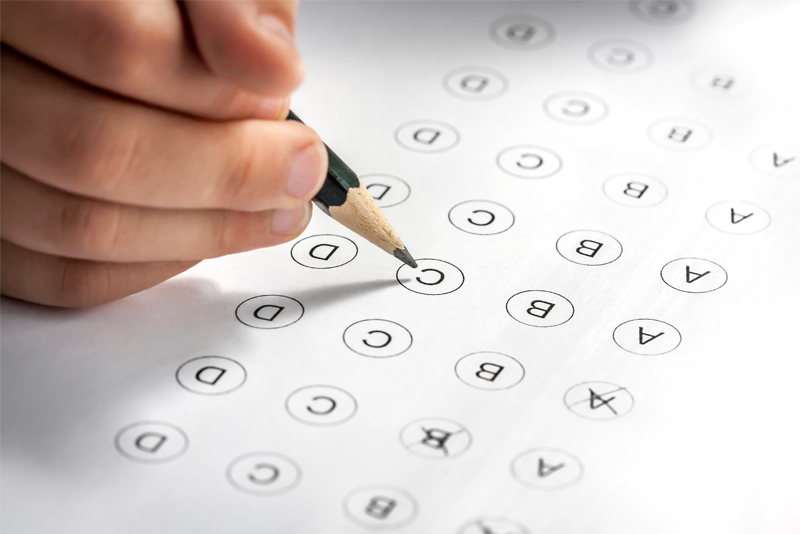Your Questions Answered: Assessment in the new IB DP Psychology course
Thank you to all the enthusiastic educators who joined us for our recent webinar, Assessment in the new IB DP Psychology course, held on May 14, 2025.
We received a remarkable number of insightful questions during the session, and to ensure everyone can benefit from the discussion, webinar host, IB expert, and Kognity author Matt Kuykendall has answered some of the most frequently asked and key queries below.
Navigating the New Syllabus Structure & Transition
Q: The new framework is to be taught this year (first tested in 2027). Does this mean the 2026 exam will follow the old format?
A: That’s a great question! In short, no. The spirit of the guideline is to ensure a robust enough design to allow for analysis and discussion.
Q: What if a student proposes using an fMRI to measure brain activity with different stimuli—how would five items apply?
A: Yes. Psychology is a two-year course. The new syllabus will be first taught in Fall 2025 (Northern Hemisphere), and the first cohort will sit the new exams in May 2027.
Q: How should we approach topics that appear in multiple contexts—like neuroplasticity or the Diathesis-Stress Model?
A: Integration is key. For instance, neuroplasticity is relevant in Health & Wellbeing, Developmental Psychology, and Learning & Cognition. Teachers are encouraged to revisit such concepts across different contexts, deepening understanding through varied lenses. The Kognity structure helps by framing learning around essential questions—letting content and concepts fall into place naturally.
Q: Does it matter which context I start teaching first?
A: Not at all. Kognity’s structure is designed for flexibility. You can begin with whichever context best suits your students’ interests or your own—whether that’s Learning & Cognition, Human Relationships, or Health & Wellbeing.
Q: Is the IB anticipating major issues due to the syllabus change?
A. No. The IB is enthusiastic about these changes and sees them as an opportunity for a change in the way teachers structure learning experiences for students.
Implementing the Practicals
Q: Should we kick off the year with a Practical to engage students early?
A: Absolutely. Practicals should be embedded into regular teaching and can begin as soon as they’re contextually relevant. No need to wait until Year 2.
Q: Can students do practicals this year if they’re starting the new syllabus?
A: Yes—if you’re teaching the first cohort (starting Fall 2025), practicals should be incorporated from the outset.
Q: Can students design their own practicals?
A: Yes—and they’re encouraged to! Just make sure you guide them with clear structure and expectations to maximize the learning experience.
Q: Do practicals need deadlines or summative grades?
A: Not necessarily. Practicals are meant to be a natural part of the course, much like a class project. Whether or not you grade them formally is entirely up to you.
Q: Is there a specific format teachers should follow for the practicals?
A: Nope—flexibility reigns here too. You can choose the format that works best for your classroom.
The Internal Assessment (IA) & Its Relationship to Practicals
Q: When should students begin their IA?
A: After completing all four practicals—ideally in the spring of Year 2. This ensures they have hands-on experience with each research method.
Q: Can a student’s IA be similar to one of their earlier practicals?
A: It’s possible, though the IA is meant to allow students to think bigger and apply what they’ve learned to real world authentic questions and challenges.
Q: Should IA development be independent or teacher-guided?
A: Both. The IB recommends dedicating 20 hours of teaching time to the IA. This should be a mix of guided support and independent student work.
Q: Will practicals make the IA easier for students?
A: They should! Students who engage thoughtfully with the practicals will find themselves well-prepared when it’s time to design their IA.
Q: Does the IA feel “too easy” now with the introduction of practicals?
A: Not at all. A well-guided process, built on meaningful classroom experience, just makes success more accessible.
Exam Paper Specifics
Q: Are there word limits for SAQs and ERQs?
A: No formal word counts are given. Use your professional judgment based on the time constraints of each paper.
Q: Paper 2 Question 4 doesn’t reference a practical—can students choose any?
A: No. Students should refer to the same research method as in the first three questions of that section.
Q: Will students be told which context to write about in Section C?
A: Yes. The IB will specify the context in the exam question.
Q: What’s expected in the 15-mark essay?
A: Check the rubric in the official guide—it provides clear criteria for structuring and assessing the response.
Q: Are there options in any of the exam papers?
A: Some questions will allow students to “choose 1 of 2” prompts. Consult the guide for details.
Q: When a question asks about the “value” of a model or theory, what’s expected?
A: Students should explain both the strengths and limitations. For example, why models help us measure, predict, and communicate about behavior, but also where they fall short.
Q: Do HL students need to learn all three HL extensions in detail?
A: Not necessarily. Only one HL extension is assessed, and it appears in just one question. Use the extensions to spark student inquiry, rather than treating them as content-heavy requirements.
Kognity’s Role & Additional Resources
Q: Do the learning outcomes in Kognity align with exam questions?
A: Yes! They directly map onto assessments—plus, there are plenty of ready-to-use questions to test understanding.
Q: There’s been talk about subjectivity in assessing the new Psychology syllabus. Any truth to that?
A: While assessment is never entirely objective, the IB has established criteria that will become clearer with time. As with any new syllabus, confidence in interpreting expectations will grow through teaching experience.
Stay connected
Still have questions? Kognity is here to help you navigate every step of the new IB Psychology syllabus. Keep an eye out for upcoming webinars, practical guides, and new content updates as we continue supporting teachers and learners through this exciting transition.
Blog articles




